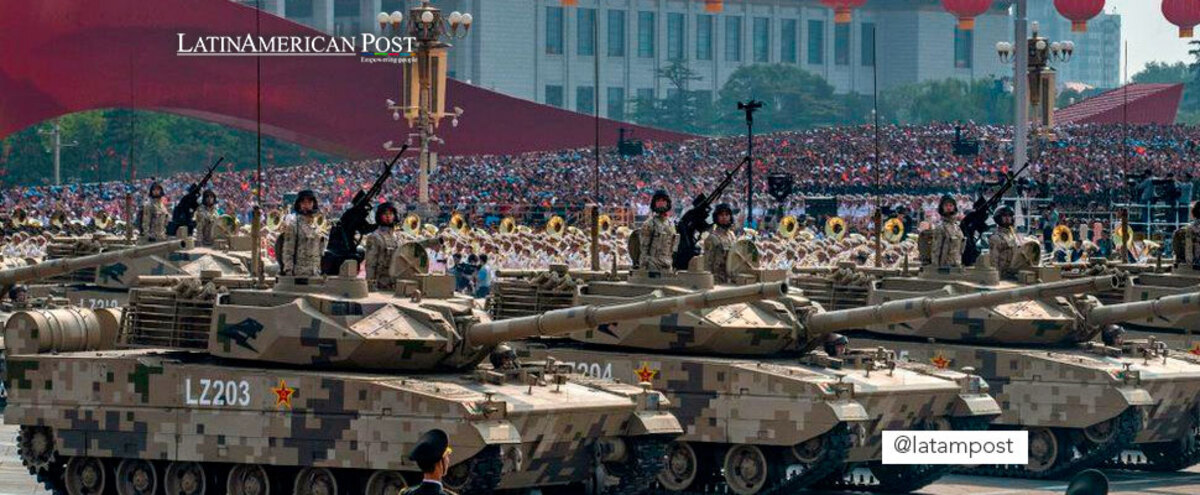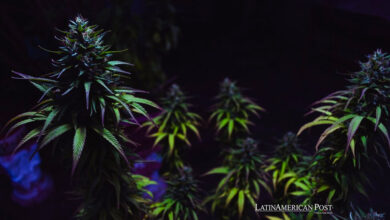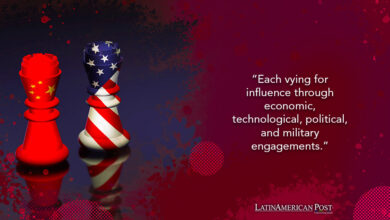Will Taiwan End Up Like Ukraine?
2022 has been marked by two media geopolitical conflicts, Taiwan and Ukraine are its epicenters. Both altercations are considered to be very similar to each other, having China, Russia, and the United States as protagonists. However, there are more differences that surround these escalations of violence.

Photo: Freepik
LatinAmerican Post | David García Pedraza
Listen to this article
Leer en español: ¿Taiwán terminará como Ucrania?
Moscow and Kyiv, despite sharing the Cyrillic alphabet, various traditions and having been one country 30 years ago, have different ideas of how to run their nations. Regardless of the fact that both are now capitalists, in their own way, there is an identity from centuries ago that they cannot ignore. In addition to sharing history, there is also a large population within Ukraine that identifies as Russian, this is what led Crimea to vote to be part of the 'Motherland' and leave out the young Ukrainian nation, motivated by ethnic, linguistic and historical attachment.
February seems to be a dark month for Eastern Europe, specifically for Ukraine, since in February 2014 the Russo-Ukrainian War began, promoted by ethnic, cultural, and pro-Western tensions whose first result was the annexation, without international recognition, of Crimea by part of Russia. Eight years later, in February 2022, the conflict in Ukraine increased again due to the possible accession of this country to NATO, a maneuver that Russia did not like at all. In response, the Kremlin gave the order to increase the Russian military force and presence to the point of invading strategic regions of Ukraine such as Mariupol.
Four months later, a new conflict became relevant in the international arena, China against Taiwan, a political altercation that has been present for more than four decades.
A hybrid and peculiar conflict
Although the disparity between Beijing and Taipei is a constant in modern history from 1949 to date, it is not a media-rich conflict because it is the same people who have wanted to take charge of their nation in different ways. The People's Republic of China (commonly known as Mainland China or simply China) has adopted a communist model but Hong Kong nicknames itself as 'One country, two systems', where this port has a capitalist identity.
On the other hand, the Republic of China (called Insular China, Chinese Taipei or Taiwan) adopted the capitalist system despite the fact that the globalized world, with the arrival of Mao, left this territory aside and was inclined to recognize Continental China as the sovereign state in the 1970s. However, the United States, taking advantage of the Cold War situation, sought Mao's China as an ally to destabilize the Soviet Union. Considering this, they were not going to leave Taiwan adrift, which was a historical capitalist ally. After several drafts, the Taiwan Relations Act (TRA) was born, a legislation that, roughly speaking, allows Washington and Taipei to have diplomatic and military approaches.
Division in division
In recent years, Taiwan has shown the intention of being independent at the head of current president Tsai Ing-Wen, a member of the Democratic Progressive Party who has a majority in the Legislative Yuan (parliament). He has been the head of the Taiwanese Executive since 2016 and has stressed the importance of environmentally friendly policies, minority rights, and also Taiwanese identity, meaning that the nation wants full independence.
Also read: Is Donald Trump Experiencing Another Watergate?
The Kuomintang or Chinese Nationalist Party seeks reunification with mainland China, based on the 1992 Consensus, which stipulates the principle of 'One China, although under the name 'Republic of China', emphasizing the historical legacy that capitalism and economic freedom have had since 1949.
The Taiwanese population in general wants total independence because they fear that, faced with an improbable reunification of both Chinas, Mao's China will take political and economic control, as it is gradually doing with Hong Kong.
For mainland China, Taiwan is a 'rogue province', which will sooner or later return to its ancestral roots, while for the Taiwanese, China is a straitjacket that does not allow them to live in full freedom of thought and mobility. Mainland China and Insular China share the same name, both are Chinese, a war there would be seen as a civil war, but not as one of independence and sovereignty (as it is in the case of Russia and Ukraine) . A direct conflict would create a general rejection within the inhabitants of Taiwan, counterproductive in the long term when the People's Republic of China wants to "invade".
Also, Beijing must maintain its patience where the United States is concerned, because, despite the fact that diplomatic relations are open between the two of them, Washington will not stop supporting Taipei, and there, the crossroads of who the United States will support before a possible confrontation, will define the winner and loser. Another difference between Russia and Ukraine is that Taiwan enjoys the protection of the West.




